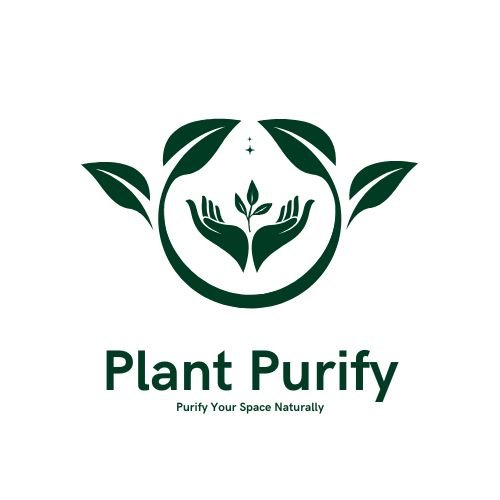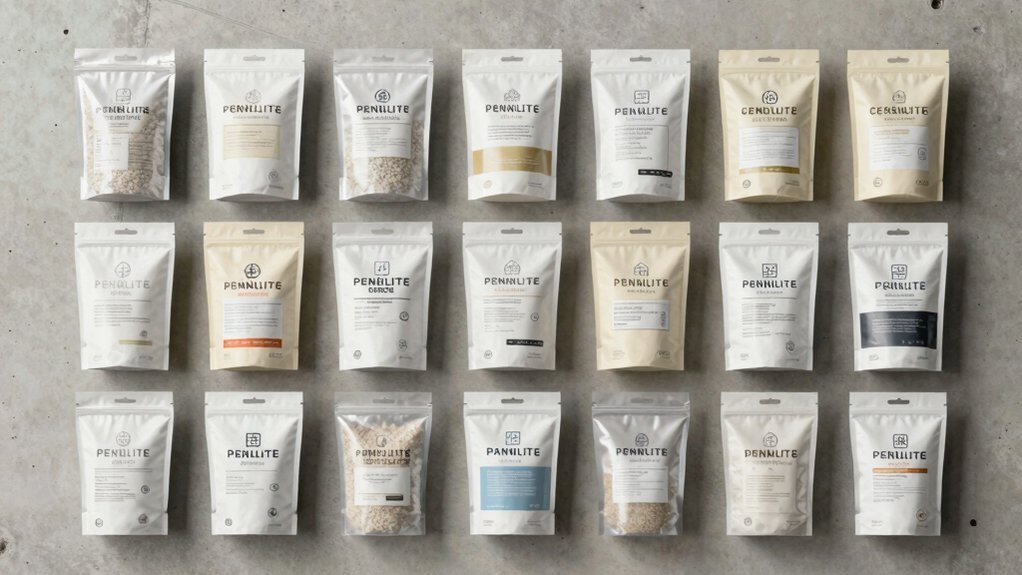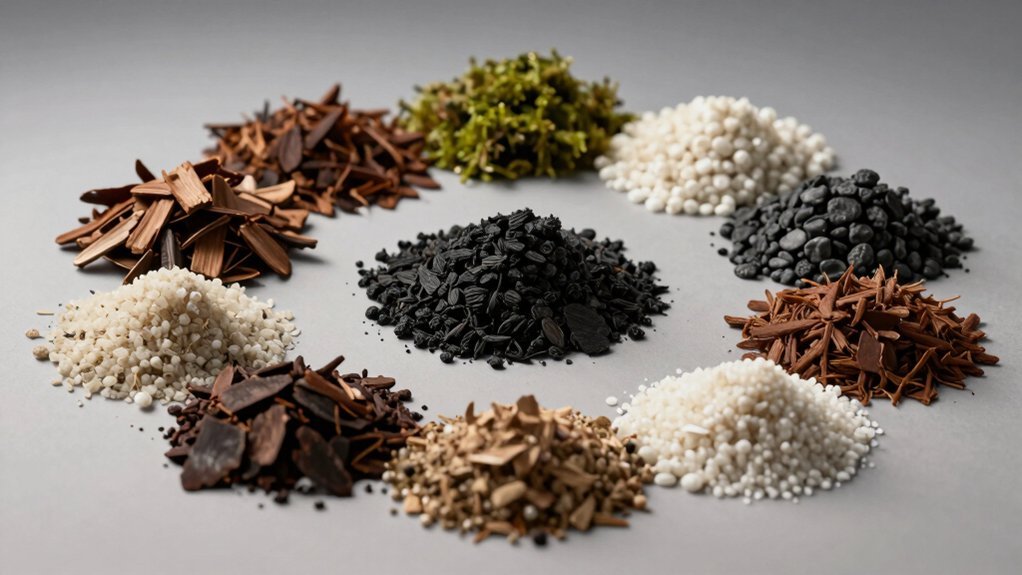If you're nurturing an air-filtering garden, you'll need more than just green thumbs to keep it thriving. Pest management becomes essential, but traditional chemical solutions can compromise your garden's air-purifying abilities. Plant experts have identified seven eco-friendly solutions that won't sabotage your garden's primary purpose. From innovative traps to organic sprays, these methods will help you maintain a healthy balance between pest control and air quality.
Professional Grade Tunnel Rat Snap Traps (Set of 2)
Air-filtering garden enthusiasts facing rodent challenges will find these professional-grade tunnel rat snap traps an effective solution. The extra-large design (8×5.6×4 inches) handles both large and small rats while protecting your pets and children with its covered tunnel design.
You'll appreciate the durable ABS plastic construction and one-touch setup that eliminates direct contact with captured rodents. The sensitive trigger mechanism and inter-locking tooth jaw guarantee quick, successful captures. For best results, bait the traps with peanut butter, corn, or bird seed, and consider tethering them to prevent removal by larger animals. While they're highly effective for rats, you might need smaller traps for mice.
Best For: Gardeners, homeowners, and property managers seeking a humane, efficient, and safe solution for rat control while protecting children and pets.
Pros:
- Professional-grade construction with covered design makes it safe around children and pets
- One-touch setup and disposal system prevents direct contact with captured rodents
- Durable ABS plastic construction allows for multiple uses and easy cleaning
Cons:
- May be too large for effectively catching smaller mice
- Requires proper bait selection and placement for optimal results
- Need to secure traps to prevent removal by larger animals
Professional Grade Rat Snap Traps (6 Pack)
Gardeners seeking a humane yet effective solution for rat control will find the Professional Grade Rat Snap Traps 6-pack an essential addition to their pest management arsenal. These extra-large traps deliver quick, lethal results without using harmful poisons or inhumane glue methods.
You'll appreciate the durable ABS plastic construction and sensitive trigger mechanism that guarantees reliable performance both indoors and outdoors. At 5.6×3.1×2.9 inches, they're sized perfectly for large rats while remaining effective for smaller rodents. The one-touch setup and disposal system makes handling clean and efficient. While some users report sensitivity issues, the 4.1-star rating from 135 reviews suggests these traps are a solid choice for protecting your air-filtering garden.
Best For: Home gardeners and property owners seeking an efficient, poison-free solution for controlling rat populations while maintaining a safe environment for pets and children.
Pros:
- Heavy-duty ABS plastic construction ensures durability and reusability for long-term pest control
- Quick-kill design with sensitive trigger mechanism provides humane elimination of rats
- Simple one-touch setup and disposal system makes handling safe and sanitary
Cons:
- Some users report inconsistent sensitivity in the trigger mechanism
- Higher price point compared to basic snap traps
- May be too large for smaller spaces or discrete placement
Hedoc Fake Owl Decoy with Rotating Head for Bird Control
Protecting your air-filtering garden from pesky birds doesn't require harsh chemicals or complex solutions. The Hedoc Fake Owl Decoy offers a humane deterrent with its wind-activated rotating head and realistic design.
You'll find this 15-inch weatherproof guardian easy to install – simply anchor it with sand or the included nails. While it's effective against birds, squirrels, and other small pests, you'll want to relocate it periodically to prevent wildlife from getting too comfortable. The hand-painted, PE plastic construction guarantees durability in outdoor conditions, though some users report diminishing effectiveness over time as birds adapt to its presence.
Best For: Gardeners and homeowners seeking a natural, chemical-free solution to protect their outdoor spaces from birds and small animals while maintaining an eco-friendly environment.
Pros:
- Weather-resistant construction with durable PE plastic and non-fading paint for long-lasting outdoor use
- Easy installation with multiple anchoring options (sand-filling or nail-down)
- Wind-activated rotating head feature adds realistic movement for better pest deterrence
Cons:
- Birds may become accustomed to the decoy over time, reducing its long-term effectiveness
- Requires regular repositioning to maintain deterrent effect
- Some users report quality issues with the rotating head mechanism and paint finish
GrowSafe Bio-Pesticide, Organic Miticide and Insecticide
Organic gardeners seeking a powerful yet safe pest control solution will find GrowSafe Bio-Pesticide to be remarkably effective. This all-natural formula achieves 97-99% effectiveness against common garden pests like spider mites, whiteflies, and aphids after just one application.
You'll appreciate that it's safe for edible plants, pets, and beneficial insects like bees and ladybugs. Unlike neem oil and conventional pesticides, GrowSafe can be used from seedling to harvest without affecting fruit taste or burning plants. Mix it with water for easy application, and consider combining it with insecticidal soaps for enhanced pest control. For best results, apply two consecutive treatments to achieve 100% effectiveness.
Best For: Organic gardeners and farmers looking for a safe, highly effective natural pesticide that won't harm beneficial insects or compromise their organic growing practices.
Pros:
- Extremely effective against common pests with 97-99% success rate after first application
- Safe for humans, pets, beneficial insects, and edible plants from seedling to harvest
- Easy to mix and apply, with excellent customer support for usage questions
Cons:
- May require multiple applications for 100% effectiveness
- Specific mixing ratios and instructions need to be followed carefully
- Price point may be higher compared to conventional synthetic pesticides
Indoor Hydroponics Growing System with 12 Pods and LED Light
The URUQ Hydroponics Growing System offers a perfect entry point for indoor gardeners who want to minimize pest problems while maximizing growth efficiency. This 12-pod system features a full-spectrum 24W LED grow light that adjusts up to 21 inches and rotates 180 degrees for ideal coverage.
You'll appreciate the system's three specialized growing modes for vegetables, herbs, and flowers, each optimizing light spectrums for specific plant needs. The ultra-quiet pump (under 20 dB) oxygenates roots every 30 minutes, while the 6.5-liter tank needs minimal maintenance. A built-in water shortage indicator and viewing window help you monitor water levels easily, ensuring your plants thrive in a controlled, pest-resistant environment.
Best For: Beginner indoor gardeners and busy individuals who want a low-maintenance, efficient way to grow herbs, vegetables, and flowers year-round without soil or pest concerns.
Pros:
- Advanced LED light system with three specialized growing modes for optimal plant-specific growth
- Ultra-quiet operation with automatic water circulation and easy monitoring features
- Generous 21-inch height adjustment and 180-degree rotating light panel to accommodate various plant sizes
Cons:
- Limited to 12 plants which may not be sufficient for larger households
- Requires regular monitoring of pH levels and addition of hydroponic nutrients for optimal results
- Initial setup cost might be higher compared to traditional soil gardening methods
EcoVenger Multi-Purpose V-Granules for Indoor & Outdoor Pest Control (1.95LB)
Natural pest control meets soil enhancement in EcoVenger's Multi-Purpose V-Granules, a versatile solution ideal for environmentally conscious gardeners maintaining air-filtering plants. The 1.95LB jug contains essential oil extracts and golden vermiculite, making it safe for households with kids and pets.
You'll find multiple applications for these granules: mix them with potting soil to prevent gnats and promote root growth, layer them in flower beds for pest control, or sprinkle them around problem areas to deter crawling insects. While some users praise its effectiveness, you should note the strong essential oil scent and apply carefully, as dosing instructions aren't clearly specified.
Best For: Eco-conscious gardeners and homeowners seeking a natural pest control solution that doubles as a soil enhancer, particularly those with indoor plants and outdoor gardens who prioritize child and pet safety.
Pros:
- 100% natural ingredients with essential oils make it safe for households with children and pets
- Versatile application for both indoor and outdoor use, serving multiple purposes from pest control to soil improvement
- Effectively controls various pests while simultaneously promoting plant health and root growth
Cons:
- Strong essential oil smell may be overwhelming for some users
- Lack of clear dosing instructions can lead to confusion about proper application amounts
- Mixed effectiveness reports with some users experiencing limited results in pest control
Natures Dome Eco-Friendly Pest Control Spray (16 oz)
Environmentally conscious gardeners will appreciate Natures Dome's non-toxic pest control spray, which combines powerful essential oils like geraniol, cinnamon, and cottonseed to combat over 40 different garden pests.
You'll find this versatile 16 oz spray effective against common threats like ants, roaches, mosquitoes, ticks, and fleas, both indoors and outdoors. The pleasant herbal scent replaces harsh chemical odors, making it ideal for your air-filtering garden spaces. While you'll need to reapply the solution periodically for lasting protection, its child and pet-safe formula offers peace of mind. The easy-to-use spray bottle guarantees precise application throughout your garden, kitchen, patio, and other areas requiring natural pest management.
Best For: Environmentally conscious homeowners and gardeners seeking a natural, child and pet-safe pest control solution that works both indoors and outdoors without harsh chemicals.
Pros:
- All-natural essential oil formula safe for families, pets, and the environment
- Effectively controls over 40 different types of common household and garden pests
- Pleasant herbal scent instead of harsh chemical odors
Cons:
- Requires frequent reapplication for sustained effectiveness
- May be less potent than chemical-based alternatives
- Some users report inconsistent spray bottle performance
Factors to Consider When Choosing Pest Management Solutions for Air-Filtering Gardens
When selecting pest control methods for your air-filtering garden, you'll need to balance plant safety and ecosystem preservation with the treatment's effectiveness and duration requirements. You'll want to carefully evaluate whether your chosen solution works safely for both indoor and outdoor applications, as air-filtering gardens often span multiple environments. Most importantly, you must guarantee your pest management approach doesn't compromise your garden's air-purifying capabilities or introduce harmful chemicals that could affect air quality.
Plant Safety and Toxicity
Selecting pest management solutions for air-filtering gardens requires careful consideration of plant safety and toxicity levels. You'll want to choose products that are specifically labeled as non-toxic and safe for edible plants to protect your garden's health and prevent harmful residues.
Consider using organic pest control options made from natural essential oils, as they're effective against pests while protecting beneficial insects and pollinators. When evaluating products, check the active ingredients' toxicity levels, especially if you have pets or children around your garden. Look for eco-friendly solutions that won't harm your plants or compromise their air-filtering capabilities.
Remember that implementing integrated pest management (IPM) strategies can reduce your reliance on chemical treatments. This approach emphasizes prevention and safe treatments, helping you maintain a sustainable and healthy garden environment.
Eco-System Impact Assessment
Before implementing any pest control strategy in your air-filtering garden, you'll need to evaluate its broader environmental impact. Consider how your chosen methods might affect beneficial insects, pollinators, and the overall ecosystem balance. You'll want to focus on organic solutions that won't leave harmful chemical residues in your soil or water.
Look for pest management products that break down naturally and won't accumulate in the environment. An integrated pest management (IPM) approach will give you the best results, combining cultural, mechanical, and biological controls. When selecting treatments, prioritize eco-friendly options that target specific pests while protecting beneficial organisms. This approach guarantees your garden remains a healthy habitat for diverse species while effectively managing pest problems. Your air-filtering garden will thrive when you maintain this delicate ecological balance.
Treatment Duration Requirements
Since different pest control solutions work at varying rates, understanding treatment duration is essential for your air-filtering garden's success. You'll need to take into account that while some treatments offer quick results, others require multiple applications over several days or weeks.
If you're dealing with persistent pests like spider mites or aphids, plan to reapply treatments every 5-7 days until you've eliminated the infestation. Keep in mind that organic solutions typically take longer to show results than synthetic alternatives. You'll also need to factor in environmental conditions, as humidity and temperature can affect how well your treatments work. For natural and eco-friendly products, you'll want to monitor your garden regularly and be prepared to reapply treatments more frequently to maintain effective pest control.
Indoor Vs Outdoor Applications
The distinct environments of indoor and outdoor air-filtering gardens demand different pest management approaches. For your indoor gardens, you'll need to focus on non-toxic solutions that won't compromise air quality or affect your home's ventilation systems. These treatments should account for controlled humidity and temperature conditions typical of indoor spaces.
When treating outdoor gardens, you'll want to implement a more robust strategy. Consider using a combination of physical barriers like nets, natural deterrents such as essential oils, and organic pesticides that can withstand environmental elements. You'll also need to evaluate your specific plant varieties and their growth stages, as outdoor pests may target particular species differently. Remember that outdoor solutions need to be more resilient while still supporting beneficial insects and maintaining ecosystem balance.
Air Quality Effects
When selecting pest management solutions for air-filtering gardens, you'll need to carefully consider their impact on air quality, as inappropriate treatments can compromise your garden's primary function. Opt for non-toxic methods that won't interfere with your plants' ability to remove VOCs like formaldehyde and benzene from the air.
Your pest control choices should support the garden's natural ecosystem, including beneficial insects and microorganisms that help maintain balance without chemical interventions. Remember that these gardens work to enhance humidity levels and reduce allergens, so harsh pesticides can counteract these benefits. You'll want to prioritize eco-friendly solutions that preserve your plants' air-purifying capabilities while effectively managing pests. Regular maintenance using natural methods will guarantee your garden continues to filter air effectively.
Cost-Benefit Analysis Considerations
Making informed pest management decisions requires careful evaluation of both financial and environmental factors. You'll need to weigh the initial investment against potential long-term savings from reduced pest damage and improved plant health. While organic solutions might cost more upfront, they often prove more cost-effective by promoting sustainable garden health and reducing future intervention needs.
Consider your time and labor costs, as some methods require more frequent application or monitoring than others. You'll also want to factor in the value of protecting beneficial insects and maintaining ecosystem balance in your air-filtering garden. By choosing environmentally friendly solutions, you're not just saving on potential healthcare costs from toxic exposure – you're investing in a safer environment for your family, pets, and community while maximizing your garden's air-purifying potential.
Frequently Asked Questions
How Often Should I Rotate Different Pest Control Methods to Prevent Resistance?
You'll want to rotate your pest control methods every 4-6 weeks. Don't use the same approach twice in a row, and mix chemical, biological, and cultural controls to effectively prevent pests from developing resistance.
Can Air-Filtering Plants Be Toxic to Pets if Treated With Pesticides?
Yes, pesticide-treated plants can be toxic to your pets. You'll want to keep your animals away from treated plants and consider using pet-safe alternatives like neem oil or diatomaceous earth instead.
What Temperature and Humidity Levels Best Prevent Pest Infestations?
You'll discourage most pests by maintaining temperatures between 65-75°F and humidity around 40-50%. Don't let it get too humid or cold, as these conditions attract insects and promote fungal growth.
Which Companion Plants Naturally Repel Common Garden Pests?
You'll find marigolds repel mosquitoes and nematodes, while basil deters flies and aphids. Plant lavender to ward off moths, mint to chase away ants, and nasturtiums to protect against whiteflies and squash bugs.
How Do Seasonal Changes Affect Pest Management Strategies in Filtering Gardens?
You'll need to adjust your pest control as seasons shift. Winter requires less intervention, while spring and summer demand proactive measures. Fall is ideal for preventive treatments before pests seek winter shelter.
In Summary
You'll get the best results for your air-filtering garden by choosing eco-friendly pest management solutions that protect both your plants and beneficial insects. Whether you're using snap traps, organic pesticides, or natural deterrents, make sure to evaluate your garden's specific needs and environmental impact. With these expert-recommended solutions, you can maintain a thriving, pest-free garden while preserving its air-purifying qualities.





Leave a Reply